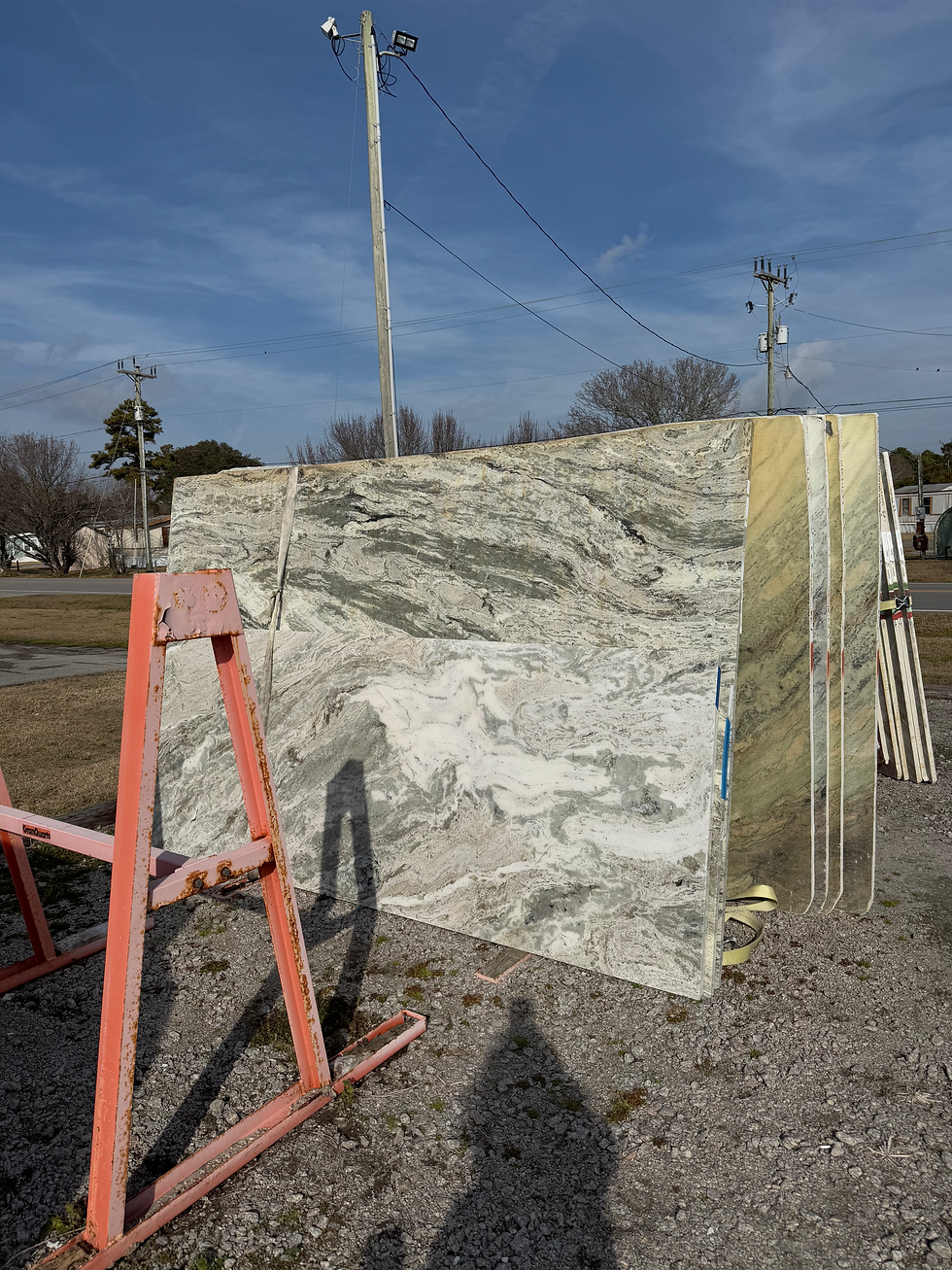Choosing the Right Countertop Material for Your Home
- Melissa Wilks
- Aug 10, 2025
- 4 min read
Designing a kitchen or bathroom comes with what feels like hundreds of decisions--cabinet style, hardware finish, lighting, tile, paint colors--the list goes on and on. But one decision that often carries one of the largest investments, both financially and visually, is your countertops.
The most challenging part? Everyone seems to have a different opinion. You've probably heard 10 different designers (and maybe a few contractors) swear by their personal favorite material--only to have the next expert tell you something completely different.
So let's cut through the noise. Here is a no fluff, no designer bias breakdown of the top countertop materials and their pros and cons. Whether you're building from the ground up or giving your space a facelift, this guide will help you make an informed decision about which material is best suited for your lifestyle, design, and budget.
Quartz
Quartz seems to be the name on the tip of everyone's tongue these days--and for good reason. It's a manmade material composed of natural quartz combined with resins and pigments to mimic the look of stone. Because it's engineered, quartz offers a wide range of colors and patterns, including some stunningly realistic marble and granite looks
This versatility makes quartz a fantastic option for homeowners who want a high-end look but need to stay within a budget. Quartz is also non-porous, meaning it resists stains, scratches, and bacteria better than many natural stones--making it especially popular for busy kitchens and family homes.

Pros:
Huge variety of colors and patterns
Mid-tier affordability compared to some natural stones
Widely available through most suppliers
Durable and low-maintenance - stain, scratch, and bacteria resistant
Cons:
Not heat resistant, due to resin content - hot pots can cause damage
Manmade, not natural
Wide variance in quality of appearance - some slabs can look less realistic than others, so it's important to see samples in person
Granite
Granite has long been a classic choice for countertops. It's a 100% natural stone that offers unique patterns and color variations because no two slabs are exactly alike. Granite typically has a more speckled or granular appearance, which can be a defining characteristic of the stone. Some people love this look , while others prefer a more minimalistic or dramatically veined style.
While granite is naturally porous, it can be sealed to resist stains and bacteria. With proper care, granite countertops can last a lifetime.

Pros:
Durable - heat and scratch resistant
Granite prices have come down in recent years, as it's not necessarily the current "trend"
Cons:
Requires periodic sealing to maintain stain and bacteria resistance
Patterns can be busy or inconsistent, which may not suit all design tastes
Marble
Marble is often regarded as the epitome of luxury and elegance in countertop materials. Although prized for its beauty, marble is softer and more porous than granite, meaning it's prone to scratches, stains, and etching from acidic substances like wine or citrus. It requires more care and maintenance than most other stones. Many fabricators require you to sign a warranty waiver when selecting marble for a high-traffic area such as a kitchen--it's not a matter of if the stone will show wear, but when.
Pros:
Timeless aesthetic appeal
Tons of variance in colors, veining patterns, and overall look
Cons:
Softer than other natural stones--prone to scratching, staining, and etching
Requires regular sealing and careful maintenance
Can be costly, especially premium slabs
Dolomite
Dolomite is a dark horse on the rise. Often marketed as a "hard marble," it's very similar in appearance to marble but tends to be harder and more durable--making it a practical alternative for those who love the look of marble but want better resistance to wear and tear. Like marble, it still requires regular sealing and maintenance to keep it looking its best.

Pros:
Elegant and natural veining similar to marble
Harder and more durable than marble
Cons:
Porous and requires regular sealing for bacteria and stain resistance
Relatively uncommon and can be difficult to source (especially since some stone yards market it as a "hard marble," not dolomite)
Can be costly (typically priced on par with marble)
Quartzite
Quartzite is a natural stone often confused with quartz due to the similarity in name. Whereas quartz is manmade, quartzite is entirely natural. Quartzite offers the best of both worlds: natural stone beauty with excellent resistance to heat, scratches, and etching.
Quartzite tends to look similar to marble but offers much greater toughness, making it a great choice for those wanting a natural stone with fewer maintenance concerns.

Pros:
Extremely durable and heat resistant
Natural stone with unique veining
Less porous than Marble and Dolomite, so better stain resistance
Cons:
Typically more expensive than quartz and granite (often priced on par with marble)
Requires sealing to maintain stain resistance
Final Thoughts
Choosing the right countertop material is a big decision that balances design, function, and budget. Each material has its unique strengths and considerations, so the "best" choice really depends on your lifestyle and design goals.
If I were choosing for my own home, quartzite would be my top pick for kitchens--its natural beauty combined with incredible durability makes it perfect for a busy kitchen. For bathrooms, I lean toward quartz, which offers a high-end look without breaking the bank. And if you're lucky, remnant pieces from your local stone yard can be a fantastic, budget-friendly option for smaller bathroom vanities.
Ultimately, the decision comes down to your personal preferences and priorities!

Comments